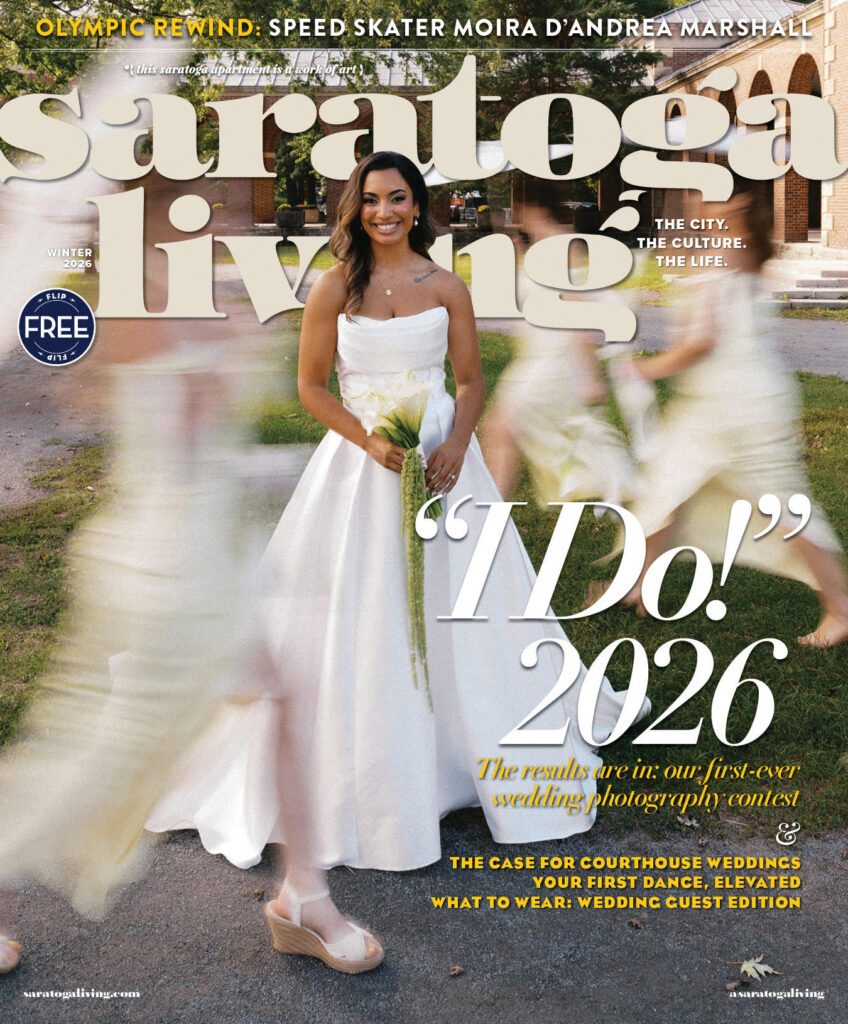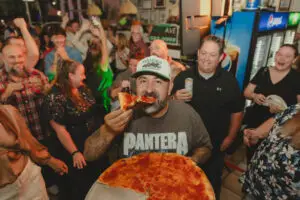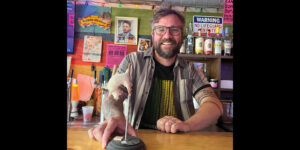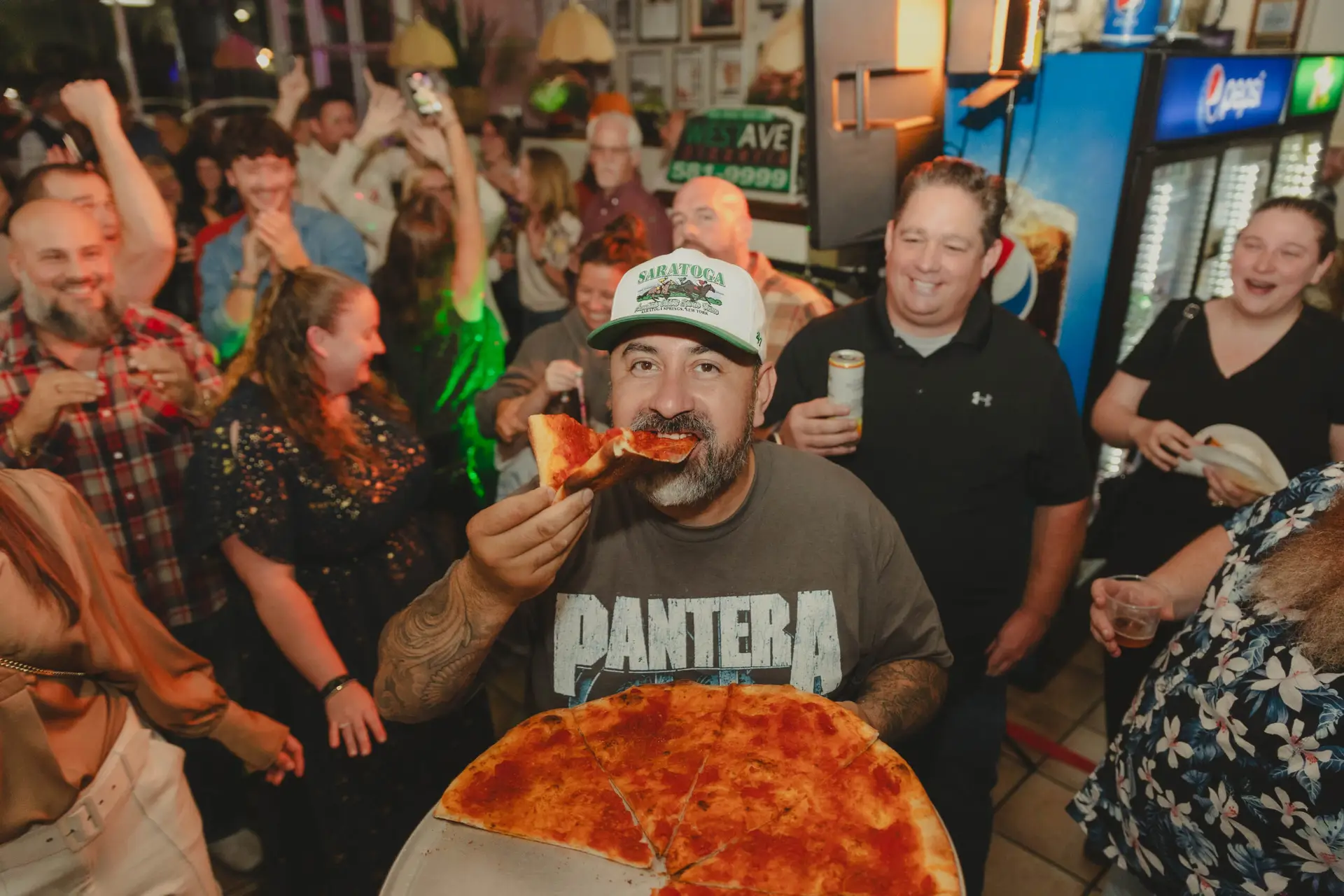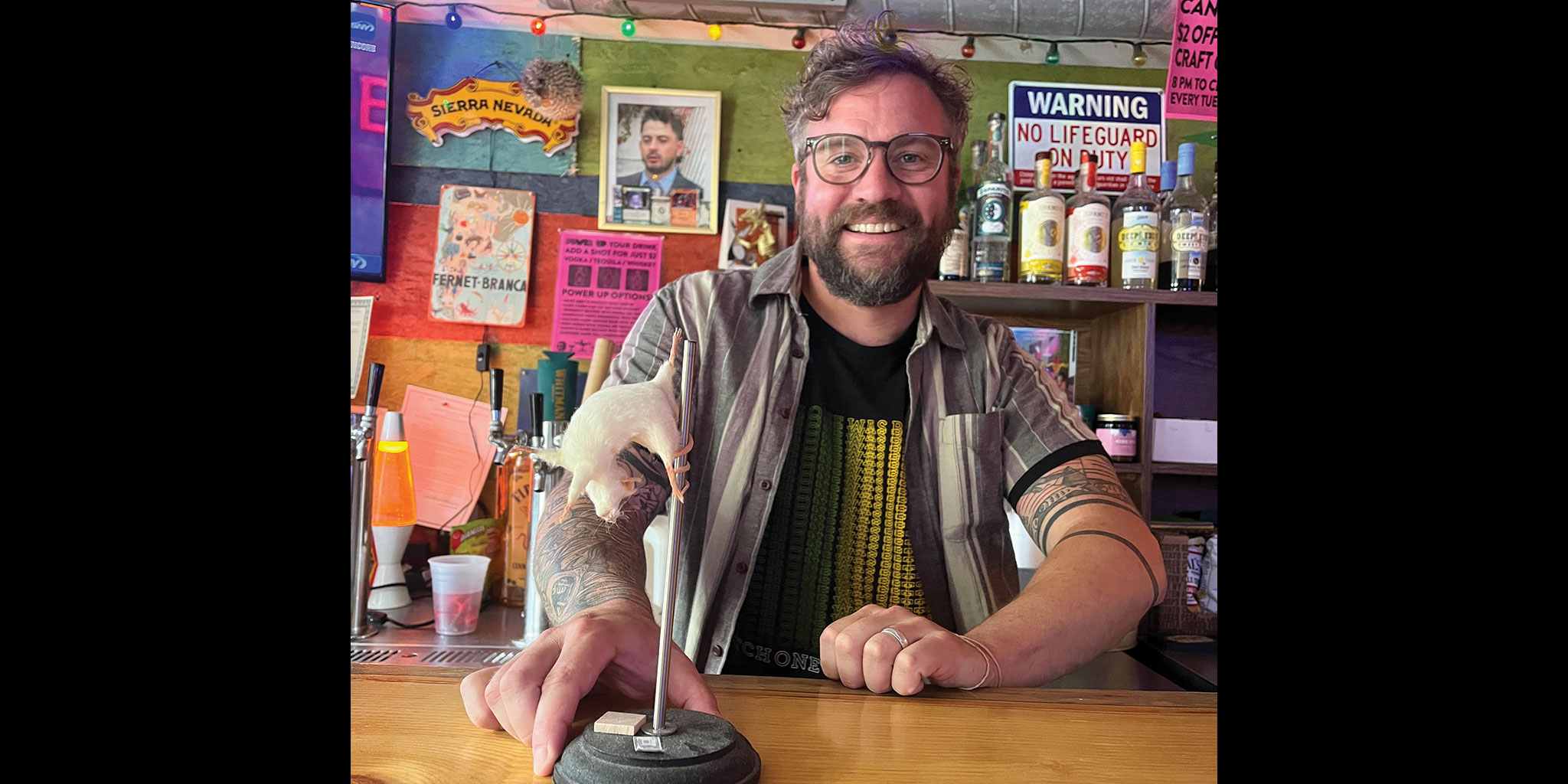I have no hard feelings towards the education I received at Saratoga Springs High School, but I do remember being stressed out most of the time I was there and feeling like there was nobody I could talk to about it. Besides all of the homework assignments and pop quizzes and year-end tests, high school was a constant struggle to fit in, make friends and be “cool.”
Unless you were Johnny Football Hero or Cheer Captain, my guess is you felt some, if not all, of those feelings. Now, imagine that you’re dealing with those academic rigors and social stressors while competing in a fast-paced, year-round sport, training on weeknights and weekends, with your sights set on going pro—and one of your coaches is sexually abusing you.
That was 15-year-old Bridie Farrell’s reality the summer before she entered the 10th grade at Saratoga High. A record-breaking short-track speedskating phenom, Farrell was the third-fastest short-track speedskater in the country by the time she was 12, and 3 years later, had her sights set on making the US national team—and someday, team USA at the Olympics. That’s when 33-year-old Andy Gabel, an Olympic silver medalist—he was the Apolo Ohno of the ’94 Lillehammer games—moved to Saratoga to train for the ’98 Olympic trials with Farrell’s coach, Pat Maxwell, a legend in his own right. (Saratoga Springs has long been a hub for speedskating.) Almost immediately, Gabel took an interest in Farrell. She was a young, impressionable kid, who took the superstar skater’s attention as nothing but well-intentioned. He helped Farrell sharpen her skates and get to and from practice, informally coaching her both on and off the ice. But soon after, he began sexually and psychologically abusing her, rending control of her young life. She felt trapped, not just while the abuse was taking place, but for years afterwards, with Gabel checking in to make sure she hadn’t told anybody.
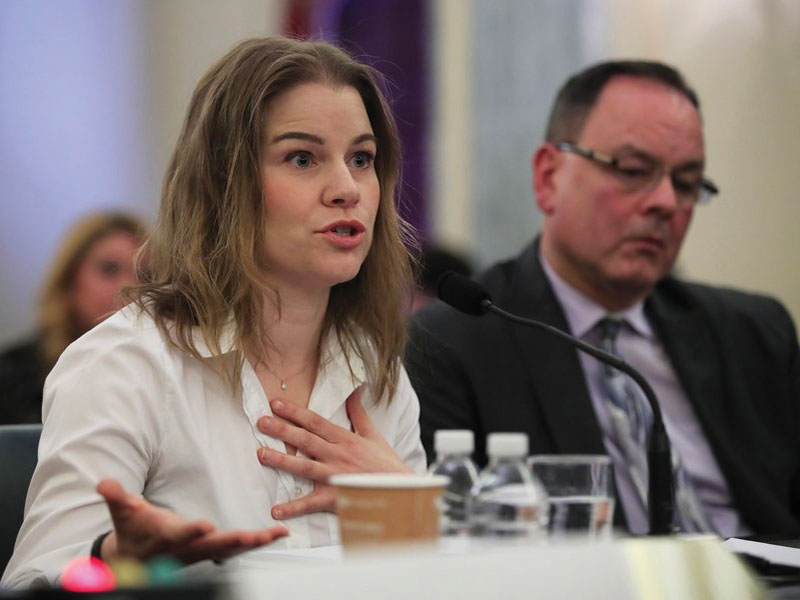
For 15 long years, Farrell lived with the secret, having told just a few family members. Although she eventually made the US national team, her career was one marred by injury, and she retired from the sport in 2006. In a last-ditch effort to chase her Olympic dreams, Farrell came out of retirement in 2013, competing as a long-track speedskater. And while she was in the headlines by the time she made it to the Sochi Olympic trials, it had nothing to do with her big comeback. That February, while living in Milwaukee and training at the city’s Pettit National Ice Center, Farrell finally went public about Gabel’s abuse on the local NPR radio affiliate. “I came forward because of a girl at the speedskating rink where I was practicing in Milwaukee,” says Farrell, who describes the youngster as simply someone she saw herself in. “I didn’t think it would be a story.” Farrell was competing in Salt Lake City, when the media tsunami hit, with coverage coming from national outlets such as ESPN, Yahoo Sports and USA Today. That November, Marie Claire published a major feature, focusing on Farrell and the national issue of sexual abuse in Olympic-style sports. “I knew that I had no legal recourse, criminal or civil, and I just said to myself, if I don’t say something, who will?” says Farrell.
The day after the news broke, in an interview with the Chicago Tribune, Gabel apologized, admitting that he “displayed poor judgment in a brief, inappropriate relationship with a female teammate,” going on to say that it didn’t involve sexual intercourse and that he knew “what happened was wrong.” (Farrell told Marie Claire that, while the relationship didn’t include sex, Gabel did kiss her and put his fingers inside her; he also placed her hands on his genitals.) In the aftermath, a second woman came forward with allegations about Gabel, but US Speedskating failed to void Gabel’s membership or remove him from the Hall of Fame. (Gabel later relinquished his membership but still sits in the Hall.)
Although Farrell ultimately didn’t qualify for the 2014 Olympic team, she had another, much more important torch to bear: That of a sexual abuse survivor. Just a handful of years later, the #MeToo Movement launched on Twitter and took the world by storm, helping to expose rampant sexual abuse in all manner of professional settings, including Hollywood, the media business and, of course, the world of sports. One particularly horrifying example was USA Gymnastics’ former doctor, Larry Nassar, who was found to have abused more than 300 preteen and teenage girls—including a number of Olympic champions. Nassar’s currently serving three consecutive 20-year prison sentences, not for the abuse but for child pornography.
Instead of slamming the door on the most traumatic experience of her life, Farrell transformed it into her new vocation. In 2017, she co-founded NY Loves Kids, a nonprofit organization working to end child sexual abuse and get the Child Victims Act (CVA) passed in New York State. (She’s the organization’s President and CEO.) This past February, the CVA was signed into law by New York Governor Andrew Cuomo, extending the statute of limitations for child sexual abuse survivors in both criminal and civil court cases. Whereas beforehand, survivors had just 5 years after their 18th birthday to bring a civil lawsuit against their abusers, the new law allows survivors to file claims through the age of 55. It also offers victims a one-year window to sue alleged abusers (based on when the bill went into effect, that period ends next August). I ask Farrell if she was able to celebrate the bill’s passage, despite it coming more than two decades after she was abused. “For me, it was awesome,” she says. “I think the bill in New York State is a very solid one. There’s, of course, always things that could be stronger, but with all the forces at play, I was certainly happy when it was signed into law.” What gives the New York law sharper teeth, Farrell says, is that it addresses the issue of child sexual abuse on not only a personal level, but also an institutional one. To that end, you may’ve noticed multiple lawsuits being filed against entire diocese of the Catholic Church in New York, which shielded priests who’d sexually abused children for decades. After dozens of similar lawsuits were filed against Rochester’s Catholic diocese in 2019, for instance, it filed for bankruptcy.
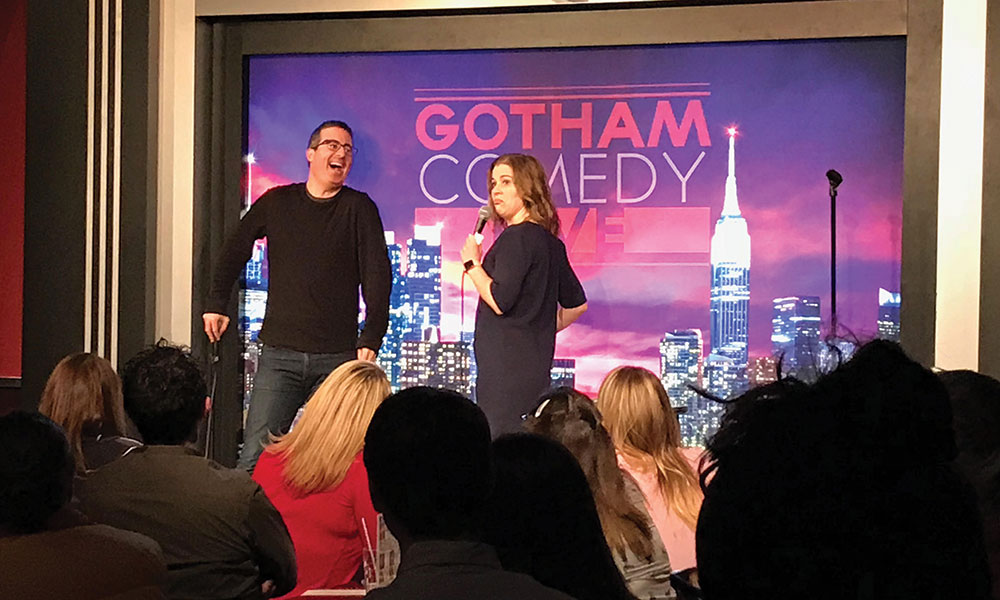
Since the CVA was signed into law, Farrell has also been working to expand her nonprofit’s reach beyond New York. “Bringing that message across New York State was really, really important,” she says. “But once we had success in New York, all of a sudden, folks started calling me, asking me if I’d help out in other states.” Those have included New Jersey and Arizona, where similar bills have been signed into law. She also has her sights set on states such as Florida, home to many New York snowbirds. In other words, Farrell’s looking to take the concept national. “We’re trying to launch America Loves Kids to be able to transcend state boundaries,” she says. She should have a lot of support; according to the US Department of Justice, 1 in 4 girls and 1 in 6 boys will be sexually abused before they turn 18.
Farrell sees child sexual abuse as a societal epidemic—one that is solvable, if approached correctly. “If we can make strides to combat cancers and viruses and acts of terrorism—where the nation can unite and get behind it and say we are stronger than any of these forces and we’re going to overcome it—I don’t see why we can’t do that for child sexual abuse as well,” she says.
Something that strikes me as profoundly heartbreaking about Farrell’s story is that, to her, Saratoga—this wonderful city where I, too, was born and raised—will forever be the
place where she was sexually abused. “It’s still not that easy going back,” she says. Her parents remain local, while her five siblings dot the country. On the other side of that coin, though, Farrell’s been amazed by the outpouring of support from friends, family and even perfect strangers when she’s ventured home. She says she still enjoys running in the Saratoga Spa State Park and going for 20-mile-long bike rides, too—clearly she’ll always be a competitive sportswoman at heart.
I can’t help but ask her if she has any advice for a high school athlete in the same, horrible position she was in all those years ago. “What I would say to a Bridie Farrell is that it’s going to end, you’ll make it through it and as hard as it is, you should find someone who’s willing to help you,” she says. “In all seriousness, I would put my phone number in the paper for any kid to call me.” I hope that every parent who reads this story understands that, with all the evil there is in the world today, there are that many more heroes like Bridie Farrell, who’ve made it their goal in life to stamp it out.






